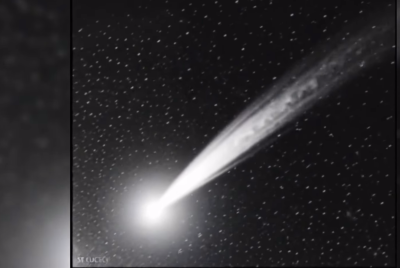What's in the Cube?: Peter Molyneux and 22Cans' First Curiosity
Fable director Peter Molyneux discusses 22Cans, Curiosity and the future of mobile
In a brand new office at the Surrey Research Park, just down the road from Lionhead Studios, 22Cans and Peter Molyneux have been working on something amazing.
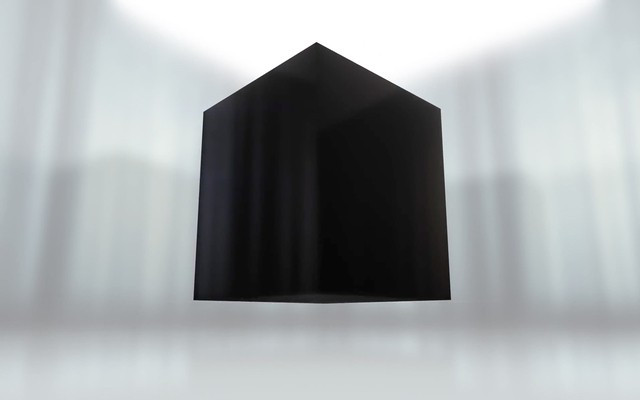
And that's not the man himself talking; despite Molyneux's reputation for hyperbole, there aren't many people who could look at his latest game (or as he prefers to call it, "experiment") and not find it fascinating.
Curiosity, which is available for free on the App Store now, is a once-in-a-lifetime multiplayer experience, literally.
An ominous black cube composed of 64 billion microscopic pieces, it's up to players from around the world to chip away at it until they reach the centre, eventually revealing, to one person only, what's in the middle.
At the time of writing, Curiosity has been live for just one day and Molyneux is reporting via Twitter that eighty million pixels have already been tapped away. We spoke to him a week earlier, when 22Cans was still wrangling to get Curiosity on the App Store:
"Apple is spending a long time putting it through cert because it's insanely different," explained Molyneux. "They're trying to get their heads round something like this. All I've said about the centre of the cube is that it's amazing, it's life-changing. So, does that mean that this is kind of like gambling? What is this like? What does it mean? "
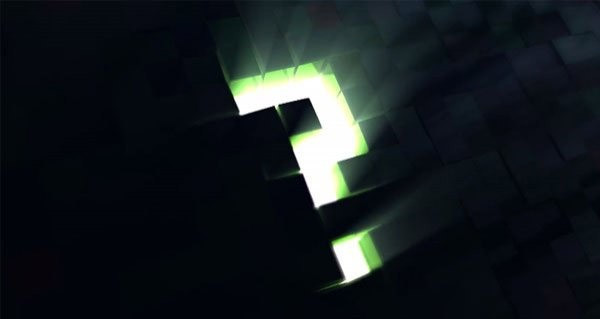
The quote-unquote "proud father" of Curiosity, Peter Molyneux left Microsoft and Lionhead in March 2012 to start 22Cans, a gaming start-up based in his hometown of Guildford. Its mission, Molyneux told Joystiq back in October is to make one game and one game only - everything before that will be an experiment.
Curiosity is the first of those; a test to see how players react to basic mechanics, Molyneux explains it's about giving his team something to get stuck into:
"Part of what Curiosity is about is solving a problem, and a problem that you have when you're a start-up is getting your teeth into something. When we started up, there were only three of us and we were kind of sitting there - I was coding, which is like an old man trying to enter a marathon. I thought to myself, we've got this plan which takes us out over a number of years and ultimately leads to this amazing product, but we don't really know about the mobile space.
"I felt that we needed to get something out that was exciting and approached entertainment in a different way, whilst solving the problem of getting us to learn how to do stuff on mobile devices, and saying something about 22Cans.
"I'd been playing with this idea in my mind of boiling things down to the simplest element, and seeing what happens when you put something mysterious out into the world. It seems to me that a lot of the games on mobile devices are insanely simple - they're rather like games from the early days of gaming. And I wondered if we could give people a simple and pure way of interacting with something, while also giving us here something to get our teeth into."
Psychology of tapping
The cube's centre is Curiosity's driving force. As mysterious as it is hard to reach, only Molyneux and one other person, who he says "needs to know" are aware of what the cube's middle contains.
Though it's bound to get shared on the internet afterwards, only one person, the one who taps the final piece of the cube, will be able to see what's in the centre first-hand. Fan speculation has ranged from a picture of a cat to the long elusive Half-Life 3. Molyneux says it's taken years to get right:
"I had this idea that we could develop something, some amazing thing that we could give away, but only give away to one person. So as all these things came together in my mind, that's when I had the idea for Curiosity.

"Inside the cube really is an incredible, amazing, life-changing thing, and it's taken me years and years and years to get the centre of the cube right. The power of our experiment lies in me not giving any clues at all about what it might be."
The eponymous curiosity of exactly what's in the middle of the cube is no doubt the biggest draw of 22Can's first experiment, but Molyneux says there's more to the cube than just its centre:
"There's something underneath each layer - it could be a clue to what's in the centre of the cube; it could be photographs of people who have tapped which have been taken from Facebook."
"We did this experiment where we took profile pictures and layered them under the cube, and we found that people did this insane thing. This one person realised as he was tapping that it was his face below the cube, and he spent fourteen hours just tapping away so he could reveal his face...We've done a lot of experiments into the psychology of tapping...you're not only tapping when you play, you're revealing."
Curiosity will also feature an in-game shop, where coins earned from tapping can be used to buy tools and power-ups. Like the Facebook photos, it's another way to manage people's progress:
"One problem we had," explains Molyneux "is that some people would think 'this is interesting. I'll download it, watch everyone else do the hard work and I'll just come in at the end and have an equal chance.' So we layered in a simple mechanic, a simple motivation - if you keep tapping, you get times two, times three and so on and your chain never ends. That earns you coins, which you can spend in the shop.
"It's going to be a dynamic shop; we're going to add things and take things away as the game goes on. You can buy firecrackers that go off, so people can see them when they're looking at the cube; you can buy bombs which blow up a lot of the cube; you can also buy these chisels that mean that one tap will expose four or eight pixels at a time.
"A good idea will be to save your coins until the cube gets smaller because that will give you a much better chance of getting to the middle first."
Multiplayer
Curiosity is a multiplayer game in the purest sense. As a one-time offering, it'll see its players working together to complete an indelible task, creating a sense of collective accomplishment that Call of Duty's rinse and repeat deathmatches cannot inspire.
But it's also highly competitive; in a world of +10 kill awards and levelling up, Curiosity's final prize is more tangible than any weapon attachment. In the beginning, Molyneux hopes, people will work together to peel away the layers; towards the end, Curiosity will become a combative rat race:
"It'll be interesting to see people working together," he explains "but as the cube gets smaller, people's natural competition will kick in. That's the fascinating thing for me. This is a psychological test: If you strip a game to its bare bones and say 'there is something amazing in the centre of this cube' then the psychology of driving people to get there is fascinating.
"Once the cube is finished, you can go in and look at the results and look at the stats. But essentially, when you get to the centre of the cube that's it - it's like a treasure hunt.
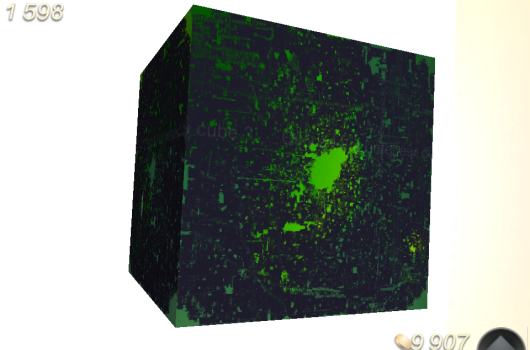
"There was this author who wrote a book about a golden rabbit, where he'd had this golden rabbit made and buried it somewhere in Britain. And you had to read the book to get clues to where it was hidden. That became a huge thing, and when it was discovered three years later it made it onto the news and things like that. I think Curiosity could be like that."
Whatever happens, Molyneux and the 22Cans team will be keeping a close eye on Curiosity. They've already arranged shifts so they can monitor the cube 24 hours a day, with Molynuex himself on watch duty from midnight to 2am:
"My ideal scenario," he explains "is a good amount of people interacting with it for a long period of time. In a few weeks' time, we might introduce new ways for people to communicate so they can coordinate maybe who goes here, who goes there. But really we're just fascinated to find out what goes on."
Digital graffiti
The demo cube Molyneux shows us has doodles by the 22Cans employees scrawled into the side. It's easy to imagine users painting personal messages or Twitter hashtags onto the cube, turning it into a kind of collective art installation.
Like the decommissioned chunks of the Berlin Wall or Yayoi Kusama's Obliteration Room, Curiosity has the potential to become an expressive space; "digital graffiti," Molyneux calls it:
"One nightmare scenario is that no one plays it; the other end of the spectrum is that it's just chaos, too many people. It's just noise. And all of the interesting stuff, all of that psychology and interaction and digital graffiti that could go on is lost in that noise.
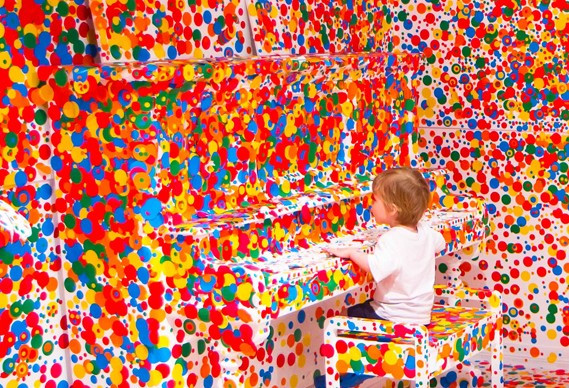
"I just don't know what I'm going to do as the cube gets smaller. It's pretty big this thing, it could take a lot of people. But I just don't know what's going to happen. As it gets smaller, should I give more clues? If it gets featured on the App Store, are we going to get people rushing onto it? I always imagined it getting discovered gradually over time."
Chaotic influx of players aside, getting featured on the App Store is perfect for Curiosity. He doesn't have an axe to grind, describing the last 10 years of computer games as having "so many wonderful moments" but Peter Molyneux is concerned about the mobile space.
A unique multiplayer experiment, in keeping with 22Cans mission statement, Curiosity is also designed to make the best of smartphones:
"Smartphones are far more powerful than anyone who's using them realises," explains Molyneux "not just in terms of technology but in regards to psychology. You've always got it with you - gaming was always an event, but now you've always get an access point. But there's nothing in software terms that's as wonderful as the device itself.
"We have these devices [iPads] that have the hardware for us, but not the software - nobody's really using them. A lot of the applications that you get at the moment are mobile interpretations of things that were invented on PCs: The Facebook mobile app is not an invention for mobile. There's nothing that really uses these devices for real connectivity."
Mobile
"There's always something that defines a generation of hardware - on consoles it's probably Call of Duty - and I'm worried that we're just burning through these people who have just started to think of themselves as light gamers or casual gamers with these same experiences.
"We could have just done another of those mobile games; some of those make $700,000 a day. But my feeling is that those are just destroying all the fascinated consumers that have these devices and it's saying 'this is gaming. It's greedy and it wants your money. It wants to take your time and not give anything back.'
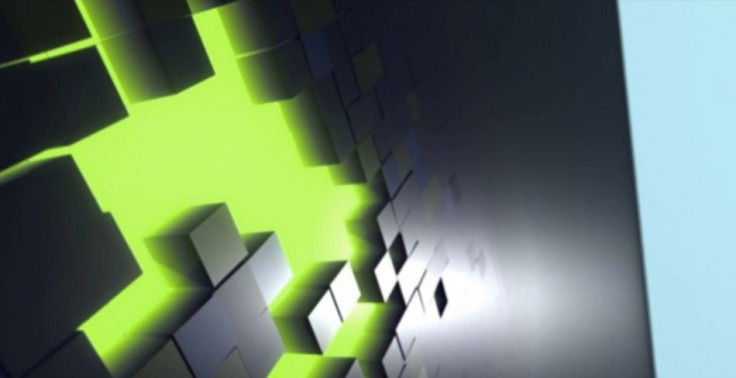
"What Zynga has started is this idea of using analytics to alter pricing, mainly to get more money. Of course, we have to make money, and there's nothing wrong with that. But I think you can make money be squeezing people dry or by making people fascinated. The problem with monetisation is a lot like people saying "oh go on then." It's painful. But if we get people to pay into these experiences because they feel more like hobbies, not because they have to then that will be much better.
"My main question is "can we use analytics on the fly to make the game better?"
Lessons
22Cans' experiment into simple and compelling game mechanics seems to be going well; on its day of release, one Curiosity player, an Australian called Geoffrey tapped away 4.6 million of its pixels singlehanded.
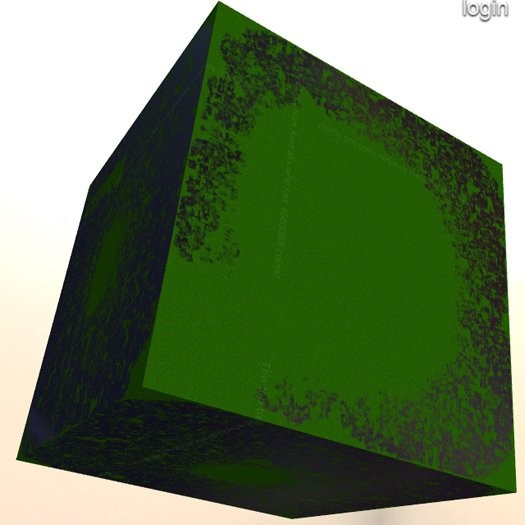
For Peter Molyneux, and the rest of the 22Cans team, Curiosity is a learning experience, the first in several lessons they've set themselves before they can make a finished game. Their next experiment, Molyneux assures, will be just as fascinating:
"We're working on another completely different experiment right now, but we're also going to be experimenting with Curiosity.
"I feel that within a year we're going to be working on or maybe be about to release something that I feel proud enough to call a great game, but the next experiment isn't going to be the greatest game of all time. It's going to be a fascinating experiment."
So, what's in the centre of the cube? We'll have to wait and find out. But what Peter Molyneux and 22Cans are working on in the long run is equally as fascinating; Curiosity is just the first layer.
© Copyright IBTimes 2025. All rights reserved.




